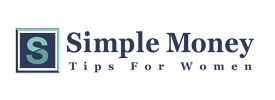
05 Dec Where Should My Investments Be Held?
There are so many different kinds of investments out there that it can make your head spin. And you want to make the right decision for your financial future, but with your friends telling you one thing and your family telling you another, how can you be sure you’re doing the right things?
We’re going to break down the pros and cons of some of the more popular investment types out there regarding taxes, ownership requirements, contribution limits, and distribution requirements, and what makes each unique. With the information in this article, you should have a much better handle on which investments would be best for you and your goals.
Individual Retirement Accounts (IRAs)
IRAs are popular investment options for many people, especially if they don’t have access to a 401(k) through their employer or if they are self-employed. There’s only one owner for each IRA.
PROS: You have the freedom to deposit into your account as you please. There is no minimum contribution amount.
CONS: You can only deposit up to a certain amount ($5,500 in 2018) per year for all your IRAs combined. The IRS determines your timeframe for depositing. For example, you have to contribute all funds by the tax filing deadline each year (usually April 15) for your IRA accounts.
There are two types of IRAs: traditional and ROTH. Let’s take a look at the pros and cons of these options:
Traditional IRA
You have to have income of some kind and be under 70.5 years old to have a traditional IRA. You are taxed at your regular income tax rate when you withdraw funds from your IRA. Generally, the traditional IRA has better tax advantages for those people who are in the higher tax brackets.
PROS: These are tax deductible if you and your spouse don’t have a retirement plan from your employer.
CONS: You can only withdraw money from your IRA after the age of 59.5 years old; otherwise, there’s a stiff 10% penalty applied along with the income tax you pay upon withdrawal. When you turn 70.5 years old, you must begin withdrawing a specified minimum amount of money from your account whether you need it or not.
ROTH IRA
Like the traditional IRA, you need income to be able to open up an account. In general, the ROTH IRA option has more tax benefits for people in lower tax brackets.
PROS: There are no age requirements when depositing money into the account. You deposit post-tax income, so when you withdraw funds, it’s not taxed because it’s already been taxed. Your money grows tax-free in a ROTH IRA. Finally, you can have a ROTH IRA even if you participate in an employer retirement plan.
CONS: Similar to the traditional IRA, you can only withdraw money penalty free after 59.5 years of age. BUT you can withdraw your initial contribution amount anytime. For example, if your first deposit was $3000 when you first opened the account, you can withdraw that amount without penalty at any age (as long as the account has been open at least 5 years). Violation of any of these rules will get you both taxes and a 10% penalty. Additionally, you’re not permitted to contribute to your ROTH IRA if your modified adjusted gross income (MAGI) is over the IRS threshold.
Employer-Sponsored Retirement Plans
If you’re lucky enough to have an employer-sponsored retirement plan, you’re missing out if you’re not partnering with your employer on your retirement funds.
PROS: Many employers match what you contribute to your 401(k) plan, so you’re doubling your money! Your employer chooses the types of investments for your 401(k) plan (usually mutual funds), so you don’t have to mess with it.
CONS: Sometimes employers impose a waiting period of a few months to a year before you can participate in the employer-sponsored retirement plan. The reason for this is to motivate workers to stick with the company long term. Sometimes, if you leave the company before a certain time period, you will lose the money the employer contributed on your behalf. (This is called a vesting schedule.) There are also limits as to how much you can deposit into your 401(k).
You have little control over which investments are made on your behalf through your 401(k).
Traditional 401(k)
PROS: There are much higher contribution limits compared to traditional IRAs, and no matter your income, you can participate in your employer’s 401(k) plan. By depositing funds into your 401(k), your taxable income is lower.
CONS: You’re required to begin withdrawing funds once you’re 70.5 years old. You pay taxes upon withdrawal of funds no earlier than age 59.5 (or you’re penalized). You are not required to withdraw funds at 70.5 years old from a 401k if still working only if you are retired.
ROTH 401(k)
PROS: Withdrawals are tax-free because you pay taxes before you deposit the funds. The maximum funding allowed is much higher than the traditional ROTH, and you’re not limited by your income (anyone can participate).
CONS: You’re penalized if you withdraw money before you’re 59.5 years old, and you must begin withdrawing money once you hit age 70.5. You are not required to take RMDs from a Roth 401k if still working only when retired.
Taxable Brokerage Accounts
This is like a savings account that you can own individually or with another person where you can own or trade assets like stocks, bonds, or mutual funds. Hold your funds in this type of account for at least one year for the most optimal tax rates (short-term versus long-term capital gains).
PROS: There are no regulations as far as income limitations or age requirements to deposit or withdraw funds. You get to choose how much you want to deposit and how often; there are no funding limits or minimums.
CONS: There are no tax advantages with taxable brokerage accounts (as you can probably tell by the name). Any interest or gains you earn are taxable each year.
Final Thoughts
Here’s the bottom line. If your employer offers an employee-sponsored retirement account, do your best to max it out, depositing as much as you can and taking advantage of any matching funds your employer offers. After that, consider the pros and cons of an IRA versus a taxable brokerage account depending on your specific situation. If you’re not sure which way to go, remember that help is just a phone call away. Contact the competent and caring professionals at www.russellandcompany.com who can walk you through all the ins and outs of where you should hold your investments.
This newsletter was prepared by a third party company to be used on the Russell & Company and Simple Money Tips for Women websites.

